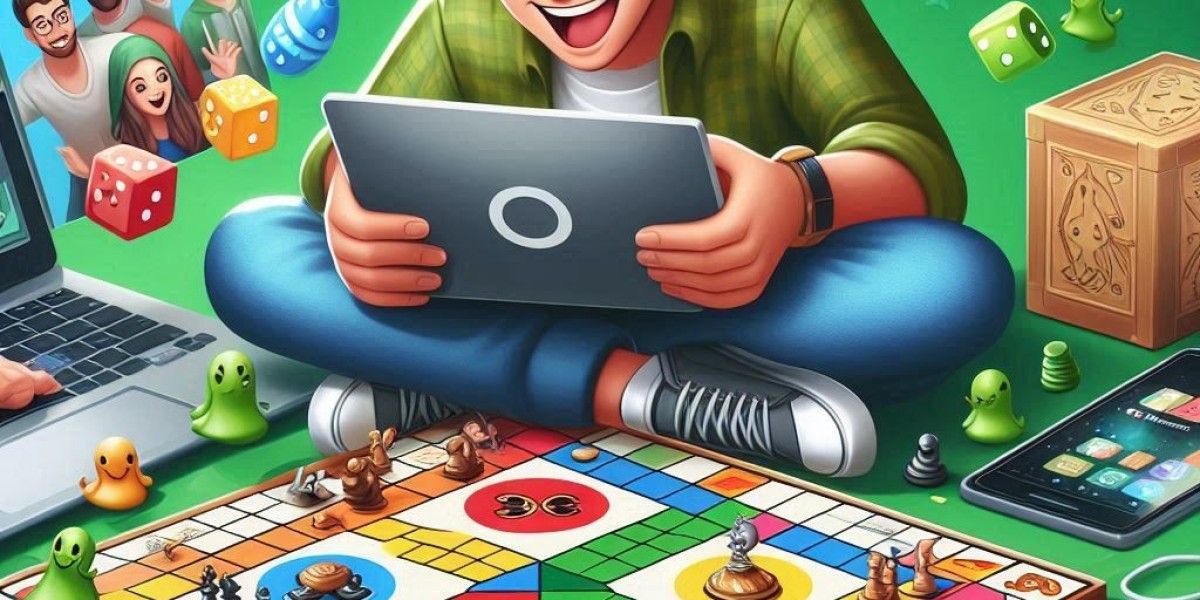Ludo is a classic board game that has captured the hearts of millions for generations. Whether you are a child or an adult, this simple yet engaging game never fails to entertain. It’s a game that transcends age and geography, enjoyed in homes, parks, and online platforms alike. In this article, we’ll explore the origins, rules, and modern appeal of Ludo, focusing on how it remains a popular choice for family bonding and socializing.
The Origins of Ludo
ludo traces its origins back to ancient India, where a similar game called Pachisi was played by royalty, including the Mughal Emperor Akbar. The game involved moving pieces around a board based on dice rolls, and it was known for its strategic elements and the way it brought people together. Over time, it evolved and was simplified, becoming what we now know as Ludo.
In the late 19th century, the game was introduced to the United Kingdom, where it gained massive popularity. From there, it spread to other parts of the world, and today it remains a staple of many households. Its rules have undergone minimal changes, and the game continues to be adored for its easy-to-understand mechanics and competitive nature.
Rules of Ludo
The rules of Ludo are simple yet strategic, making it an accessible game for all ages. The game is played on a square board divided into four sections, each with a different color. The objective is for players to move their pieces from their starting point to the finish line, located in the center of the board. Each player rolls a dice, and based on the roll, they move their pieces.
Here are the basic steps involved in playing Ludo:
- Players and Setup: Ludo can be played by two to four players. Each player selects a color and places their four pieces in the corresponding colored starting area.
- Rolling the Dice: Players take turns rolling a dice to determine how far they can move their pieces. To enter the board, a player must roll a six. Once a piece is on the board, players continue moving based on the number rolled.
- Moving the Pieces: Players move their pieces along the path toward the center, avoiding being "captured" by opponents. If a player lands on a square occupied by an opponent’s piece, the opponent’s piece is sent back to its starting area.
- Winning the Game: The first player to get all their pieces to the center wins the game. However, the strategy is key—planning your moves while blocking others is just as important as rolling the dice.
The Appeal of Ludo in Modern Times
In recent years, Ludo has seen a resurgence, especially with the advent of online gaming platforms and mobile applications. Many players are now enjoying Ludo in digital form, where they can challenge friends or play against random opponents from around the world. The game has evolved with technology, offering exciting new features such as multiplayer modes, chat options, and leaderboards.
Moreover, Ludo's simplicity and strategic nature make it an ideal game for social gatherings. It is not just about luck; it also requires thoughtful decision-making, which keeps players engaged. For families and friends looking for an activity that can bridge the generation gap, Ludo is an excellent choice. Its nostalgic charm and ability to promote healthy competition make it perfect for any occasion, from a casual family night to a more competitive tournament.
Benefits of Playing Ludo
While Ludo is undoubtedly fun, it also offers several cognitive and social benefits. The game helps develop strategic thinking, as players must think ahead to anticipate opponents' moves and plan their own. It also enhances numerical skills, as players need to count and calculate their moves.
Additionally, Ludo encourages social interaction, fostering communication and teamwork when played in groups. It’s a great way for families to bond and create lasting memories. In the digital era, it brings people together online, enabling friends and relatives to stay connected, even if they are miles apart.
Conclusion
ludo game earn money has remained a beloved game for centuries, and its enduring popularity is a testament to its universal appeal. Whether you’re playing the traditional board game or enjoying a digital version on your phone, Ludo continues to provide hours of entertainment and bonding for people of all ages. It’s a simple yet engaging game that brings joy to everyone who plays it. So gather your friends and family and roll the dice—Ludo is waiting!
Naijamatta is a social networking site,
download Naijamatta from Google play store or visit www.naijamatta.com to register. You can post, comment, do voice and video call, join and open group, go live etc. Join Naijamatta family, the Green app.
Click To Download


